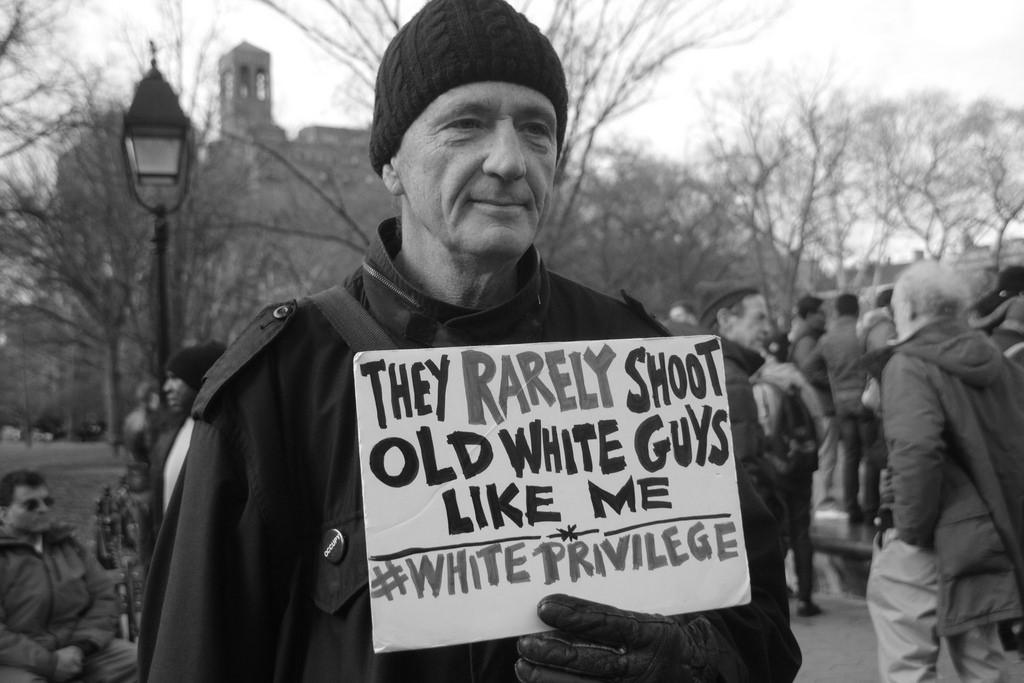Once upon a time, I would have gotten very angry if anyone had told me I was a racist. There was no “block” feature in those days – no Facebook, barely even any email – but, if a person had called me a racist, I would have hit the metaphorical block button.
I knew slavery of African Americans was evil. Segregation was evil. I loathed the KKK – after all, as a Jewish woman, I would also be one of their targets. I even had Black friends. So how could I be racist?
What I didn’t understand at the time was that racism is not confined simply to personal racial prejudice and deliberate advancing of white supremacy. The reality is that racism is systemic, institutional, and pervasive, and that even if one does not wish to be racist, chances are one has been brought up to hold certain views and make certain distinctions that involve racist presuppositions.
For example: “I have nothing against Black people, but I think their culture has a lot of problems.”
Yes, people say that. If you ask them, “okay, so what do you think the reasons for the problems in the Black communities are?” people will allude to “fatherlessness” or “anti-social attitudes.”
“Well, okay, so why do you think these problems exist?”
Whatever the answer, it always comes with an unspoken suggestion that Black people have made bad decisions, and created their own problems of violence and poverty.
The real reason for the problems in Black communities is, simply, racism. Generations of being deprived of equal rights and full protection, having less access to education or employment, being targeted unjustly by law enforcement, having poor medical care – and, before that, a legacy of families being ripped apart over generations, women raped and abused, men treated like animals – these things will have an effect on communities. That’s what “family values” means, right? Or what it should mean.
I didn’t know this for years, however, because I didn’t have to think about it. The KKK might not consider me White, but I’ve got enough Whiteness going on, in my appearance and my culture, not to have to think about racism affecting me. At least not personally, today, in the circles I move in. Not having to think about racism much means that you can go through your life knowing almost nothing about how it really works on a daily level. It means you can be racist without meaning to be (yes, this is possible. Think about how often we are sinful without realizing it. It happens).
What changed for me is that at some point I heard someone say “White people need to listen to Black people on race issues” – and it struck me as true, in the same way men need to listen to women about feminism and issues of gender inequality. Those who have suffered the injustice will understand it more than those who benefit from the tradition of perpetuating it.
So I began to listen. And listen. And listen.
Almost everything I used to believe about race issues – except for the really obvious stuff like NAZIS BAD and KKK BAD – was wrong. No, racism did not end. “Not seeing color” is not the solution. We can’t just put people on an equal footing when multi-generational trauma means a whole demographic starts out disadvantaged. White privilege is real, and the fact that I grew up with no money or running water, and had to struggle every step of the way, does not mean that I don’t enjoy the privileges of whiteness. Being Jewish does not automatically exempt me from being racist. Dating Black guys did not make me not a racist.
And so on.
If we, as White people, wish truly not to be racist, just saying that we aren’t is not the way to do it. I can’t be a body-builder just by calling myself a body-builder. You can’t be a poet just by calling yourself a poet. There has to be real work and discipline involved.
The very first step, fellow White people, if you’re serious about this, is – do what I did. Stop talking, and listen. Listen to what Black people have to say about their experiences of racism. Read Black authors, and Black bloggers. Listen to activists. Follow them on Twitter. Watch videos. If a Black person tells you something you’ve said is racist, don’t get angry and shout “I’m not a racist.” That makes as much sense as it would if your fitness coach told you you were doing your exercises wrong, and you shouted “I’m already in perfect shape!”
Yes, I’m a White person telling you this, because it’s our job, as allies, to use our privilege for justice. And chances are, if you really do have Black friends, they are not always going to feel comfortable calling you out on racist attitudes. They may have been merely tolerating your presumptions, for a while. If you want to be a good friend to them, do the work of educating yourself on how to do it. And then maybe ask them about their experiences, and thank them for being patient with you.













